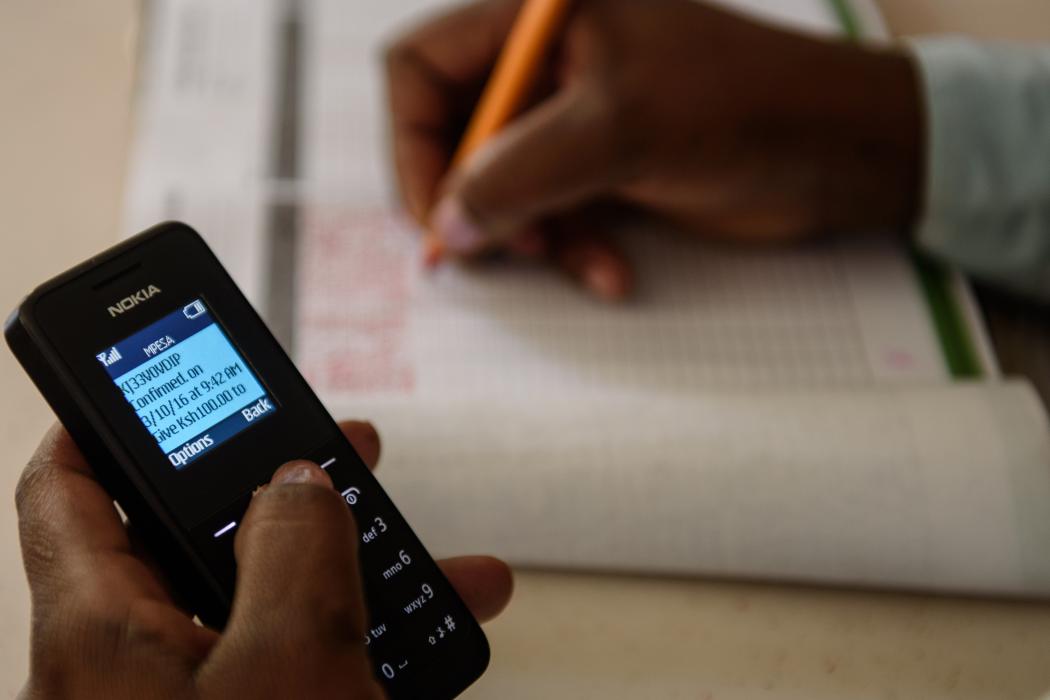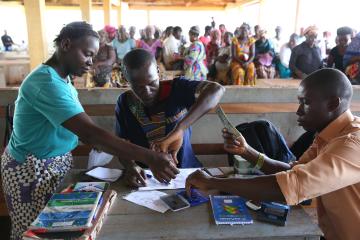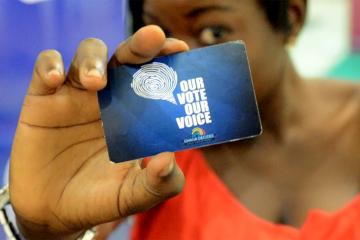Digital Identification and Finance Initiative in Africa (DigiFI Africa)

The Digital Identification and Finance Initiative in Africa (DigiFI) aims to generate rigorous evidence on how African governments, private companies, and NGOs can leverage digital payments and identification systems to improve lives through better public service delivery, governance, and financial inclusion. To achieve this vision, DigiFI plans to support governments and other implementers to monitor and evaluate relevant reforms.
DigiFI Announcements
[NEW] DigiFI Scholarships for J-PAL online courses [starts 9 Feb 2021] Apply here.
[NEW] General DigiFI Rolling Funding
DigiFI is accepting off-cycle proposals. Applications are open on a rolling basis and will be reviewed every few weeks. Find further details on our Request for Proposals page.
[New] DigiFI blog series: Deepening our understanding of the digital ID and payment research agenda
Sign up to our DigiFI Africa newsletter: j-p.al/newsletter-signup
Overview
A growing number of African governments have begun pursuing the digitization of payment systems, while others are switching to biometrically-authenticated national IDs which integrate access and delivery of key public services. Early research suggests there is opportunity across Africa for digital technologies to help reduce leakage in the delivery of public goods and services, to increase fiscal capacity, to reduce corruption, and, to boost the welfare of citizens, particularly marginalized groups. Yet, there remains a glaring lack of rigorous, peer-reviewed evidence on the overall impacts of these digital payments and ID systems.
DigiFI Africa aims to fill this evidence gap by funding cutting edge research projects focused on the study of innovative government payment systems, and ID reforms. We expect the evidence produced by this initiative will inform governments on how best to design and implement reforms to maximize benefits to citizens and mitigate risks.
The scope of funding aims to include projects across a range of possible interventions, including but not limited to:
- How can digital ID systems assist with targeting and efficiency in public programs? Do digital ID systems assist or hinder in reaching marginalized populations?
- How do digital IDs affect voter participation, the fairness of elections and electoral outcomes? Does increased enfranchisement affect policy decisions?
- How can digital ID systems and digital payments assist in building incentive systems to motivate public servants?
- Can expanding the formal economy increase the tax base through incentives and simplified processes introduced by digital payments and digital IDs?
- What is the impact of digital ID and digital payment systems on market-level general equilibrium effects? What are their impacts on wages and employment? Are there impacts on occupational choice or migration?
- Can digital ID systems encourage businesses to enter the formal sector? Do these reforms reduce entry costs to entrepreneurship and enable productive investment?
- How do different privacy measures impact take-up of digital IDs?
Recognizing the importance of prompt and reliable information on the performance and impact of reforms, the initiative will take a two-pronged approach, funding:
- Formative research that includes pilot and high-frequency monitoring systems to assess the status and health of payments and ID programs at various stages of reforms, and
- Rigorous randomized evaluations to assess the impact of roll-outs of promising payment and ID reforms.
Key Facts
Sectors:
Office:J-PAL AfricaCo-Chairs:
Status:
- Research RFP: Open
Eligibility:Open to J-PAL affiliated professors, DigiFI invited researchers, resident African Scholars and non-resident African Scholars.
Contact:digifiafrica@povertyactionlab.org
Funders
Featured Content
BLOG
DigiFI blog series: Deepening our understanding of the digital ID and payment research agenda

BLOG
Can digital technology help create a more gender-equal society?

BLOG
Leveraging the digital revolution: Can governments utilize big data to help decision making?

BLOG
Overcoming under-subscription of welfare programs: Digital solutions to low take-up

BLOG
Incentivizing public sector employees: The role of digital technology in enhancing the carrot and the stick

BLOG
The leaky bucket: Can digitization of social welfare programs reduce leakages?

BLOG
Reaching the most vulnerable: Can digitization improve social assistance targeting?

BLOG
The rise of mobile money in sub-Saharan Africa: Has this digital technology lived up to its promises?

BLOG
Should government payments be digitized?

BLOG
Digital IDs: The good, the bad, and the unknown

BLOG
DigiFI Africa’s new blog series: The various facets of digital IDs and payments

BLOG
Building back better: Catalyzing digital financial services for women across Africa

BLOG
DigiFI Africa: A pillar of the G7 Partnership for Women’s Digital Financial Inclusion in Africa

BLOG
The role of a (digital) universal basic income in supporting pandemic resilience

BLOG
African scholars: Refine your randomized evaluation skills through the DigiFI Webinar Series

BLOG
J-PAL Africa launches the Digital Identification and Finance Research Initiative (DigiFI Africa)
REVIEW PAPER
Digital Identification & Finance Initiative Africa: An Overview of Research Opportunities
OFFICE
J-PAL Africa
FOR RESEARCHERS
Request for Proposals
DigiFI Africa accepts proposals for the following categories: Proposal Development grants (up to $10,000), Pilot studies (up to $75,000), and Full-Scale RCTs (up to $400,000). DigiFI aims to run a call for proposals approximately every 6 months. We are currently accepting off-cycle proposals. ApplyOPPORTUNITIES
African Scholars
DigiFI provides research funding opportunities to resident and non-resident African Scholars.Learn more
Initiative Team
Board Members
Tavneet Suri
Jessica Goldberg
Jenny Aker
Sandip Sukhtankar
Anzetse Were
Seth Garz
Staff
Nidhi Parekh, Director of DigiFI
Gabriel Tourek, Postdoctoral Fellow
Kodjo Aflagah, Postdoctoral Fellow
Aimee Hare, Senior Policy Associate
Thokozile Malaza, Policy Associate
